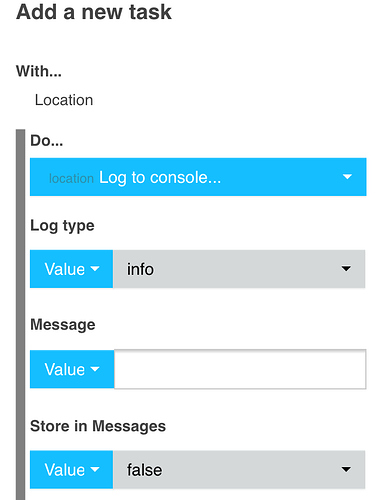I think the answer is “yes”, but I would just like to confirm that.
Example:
time dawn = $sunrise
time sunup = ({addMinutes(dawn,-60)})
My question is more so sparked by not being able to move variables. Does the order matter? In other words, could sunup be defined before dawn?
I think the answer is again “yes”. Which led me to wonder if the expression gets evaluated each time it is used. For example if sunup was referenced and then the value of dawn was changed… The next time sunup was referenced would it contain a new value?
If I pack just one more question in here :)…
To define a piston state, “disable automatic piston state;” must be set. Any side effects of “disable automatic piston state;” How is the default value used? Thanks.

